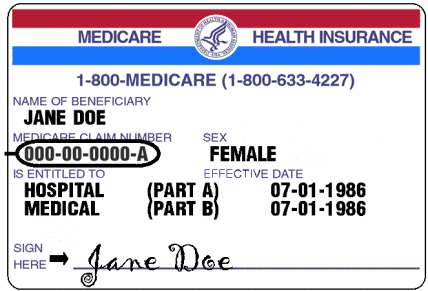 After visiting the hospital from a sudden fall, or some other unexpected medical event, an older or elderly patient almost always requires some extended time for recovery. But a hospital bed isn’t really the appropriate place for such a long recovery, since hospitals are intended mainly to care for those needing emergency attention, intensive care, or otherwise monitoring of a potentially unstable condition. So instead, the hospital usually refers such a patient to a long term care facility; a.k.a. nursing home or nursing facility. Here, the patient can obtain occupational and physical therapy, along with 24 hour care and assistance during that time.
After visiting the hospital from a sudden fall, or some other unexpected medical event, an older or elderly patient almost always requires some extended time for recovery. But a hospital bed isn’t really the appropriate place for such a long recovery, since hospitals are intended mainly to care for those needing emergency attention, intensive care, or otherwise monitoring of a potentially unstable condition. So instead, the hospital usually refers such a patient to a long term care facility; a.k.a. nursing home or nursing facility. Here, the patient can obtain occupational and physical therapy, along with 24 hour care and assistance during that time.
Does Medicare Pay for Nursing Home Care in Massachusetts?
The answer to that is no . . . but sometimes. Reflecting on the situation we just described, Medicare doesn’t normally cover the type of care received in a nursing home, or “custodial care.” Again, this can be defined as that care required whenever assistance with activities of daily living is needed; e.g. eating, bathing, getting out of bed and getting dressed. And while Medicare does not offer benefits for such long term care needs, it does continue to provide insurance for traditional Medicare services like prescription drugs (Part D), hospital & doctor visits (Parts A & B) during the period of time someone is living or staying in a nursing facility.
Although Medicare doesn’t cover long term custodial care, it will in some instances cover temporary benefits at a “skilled nursing facility.” These facilities are in fact nursing homes in many instances. Medicare will cover services administered in a skilled nursing facility only if certain criteria are met, namely:

- The facility must be Medicare certified as a skilled nursing facility. Assisted living homes, by contrast, generally do not qualify.
- The patient/resident has Medicare Part A hospital coverage.
- The patient must have spent 3 days in the hospital as an admitted patient. Hospital visits deemed less necessary, for example staying merely “under observation” do not qualify.
- A doctor must recommend that skilled nursing services are necessary to recover for the illness that placed the patient in the hospital, or else an illness related to that placement.
- The resident may only be admitted on an inpatient basis, and not for long term care.
How Long Will Medicare Cover Nursing Home Care, and for How Much?
The length of time a patient’s nursing home stay is covered, and how much must be paid varies according to Medicare plans, any Medicare supplement plans, and long term care insurance, but the formula generally goes as follows:
- The first 20 days of care at a skilled nursing facility after a qualifying hospital visit (see above) will be 100 percent covered for the patient. This stay is granted on a “per illness” basis, which is addressed by regulations. In essence, going in and out of such a facility for the same illness will not reset the 20 days.
- The second 60 day term is covered with a daily co-payment that adjusts each year, that was $146 per day for 2012.
- The co-payment period may last as long as 80 days after the initial 20 day period, but days used in excess of the 60 day secondary term will be taken from a “lifetime amount.”
Again, these formulas can vary, and each patient needs to speak with the business office of the facility in order to determine coverage. More detailed information is available on the Medicare website with this guide. It is more important, however, that the patient be aware of his or her options after Medicare benefits run out. If there is little to no improvement, then the patient may need to consider long term residence at the nursing home.
Who Pays the Nursing Home After Medicare Runs Out?
The complete answer to this question depends, but the payment of Massachusetts nursing home care will either come directly from the patient, or else from Medicaid through MassHealth. What varies in this situation is how much the patient has in assets, and whether he or she can “spend down” assets in order to qualify.
Note: By far one of the most difficult situations we encounter in qualifying for Medicaid is a client that has begun gifting or trying to spend down based on amateur advice. If you are planning to spend down assets for Medicaid, please do not delay in calling a MassHealth long term care attorney at our office.
Whether or not the resident chooses to spend down or private pay will be determined by factors such as how much the resident owns in assets, whether the resident is married or not, and whether the resident owns a home. As mentioned in the note above, such determinations need to be made with the assistance of someone familiar with the Medicaid application process in Massachusetts such as a Medicaid specialist or MassHealth lawyer.
 If the resident has no assets, or if the decision is made to spend down in order to qualify for MassHealth, then the next step is to complete the MassHealth application for long term care. While the business office of a nursing home will often assist the family or resident in completing this application, these staff members are far from experts in the field. If the resident even made modest gifts in the past 5 years, for example, staff members will not know how to handle an appeal if benefits are denied. The safest bet when a Medicaid application is begun, is to hire an attorney in the field.
If the resident has no assets, or if the decision is made to spend down in order to qualify for MassHealth, then the next step is to complete the MassHealth application for long term care. While the business office of a nursing home will often assist the family or resident in completing this application, these staff members are far from experts in the field. If the resident even made modest gifts in the past 5 years, for example, staff members will not know how to handle an appeal if benefits are denied. The safest bet when a Medicaid application is begun, is to hire an attorney in the field.
We are always available to answer your questions or legal concerns. For more specific information about your particular Medicaid situation, please feel free to call or email us at anytime at atty.mcnamara@comcast.net




